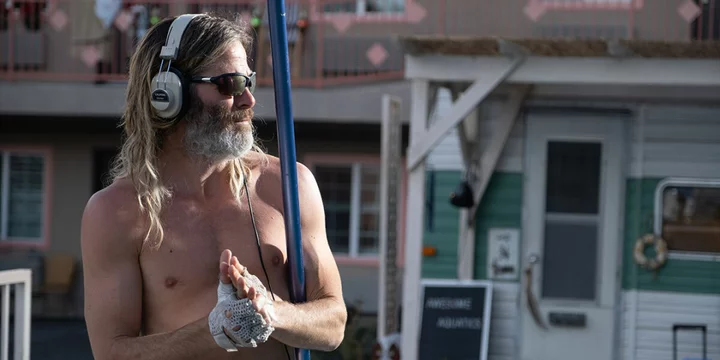
'Poolman' review: How bad is Chris Pine's directorial debut?
In Chris Pine's directorial debut Poolman, Pine himself stars as an amateur sleuth in Los
2023-09-21 17:48
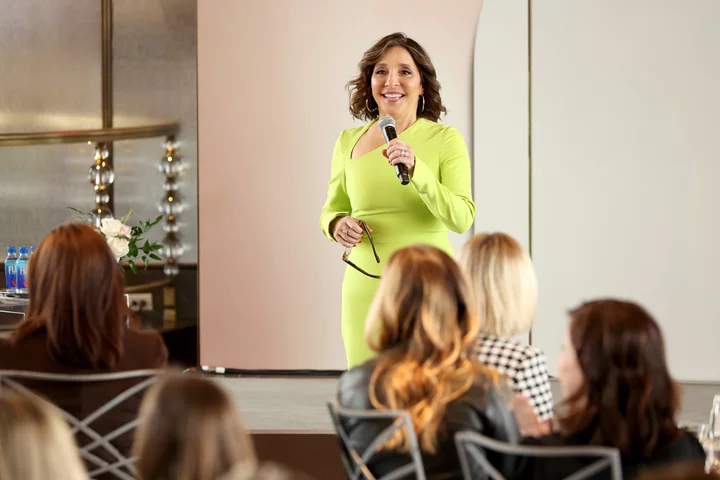
New Twitter CEO is former NBCUniversal exec Linda Yaccarino
Months after Elon Musk ran a Twitter poll in which the platform's users voted for
2023-05-13 02:20

What's the Kennection? #74
All five answers to the questions below have something in common. Can you figure it out?
2023-08-06 20:52

HP Z4 G5 Review
The HP Z2 G9 desktop workstation packs a serious punch, but the Z4 G5 under
2023-06-26 04:51
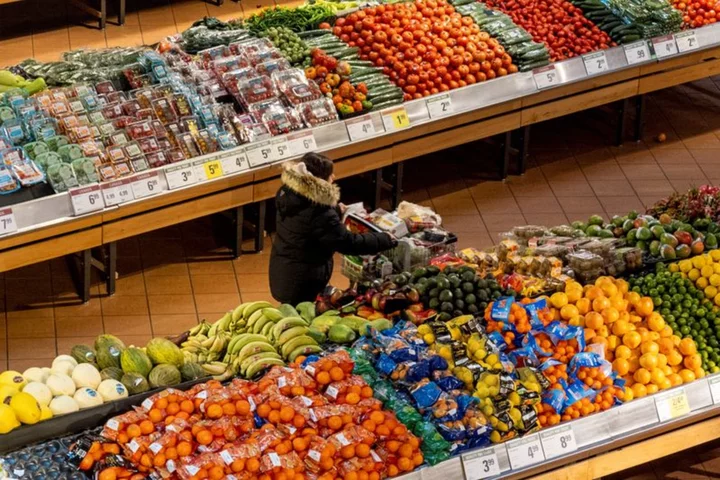
Canada plans to amend competition laws to control rising food prices
Canada plans to amend its competition laws to enable the regulator to act against anti-competitive mergers in the
2023-09-16 04:18

Victoria Beckham based new perfumes on treasured memories
Victoria Beckham has revealed she based her new collection of fragrances on treasured memories with her husband David and their kids
2023-10-05 18:16

10 Helpful Apps to Organize Your Holiday Gift Lists
If you're anything like us, the status of your holiday gift list is…complicated. It exists
2023-11-19 04:58
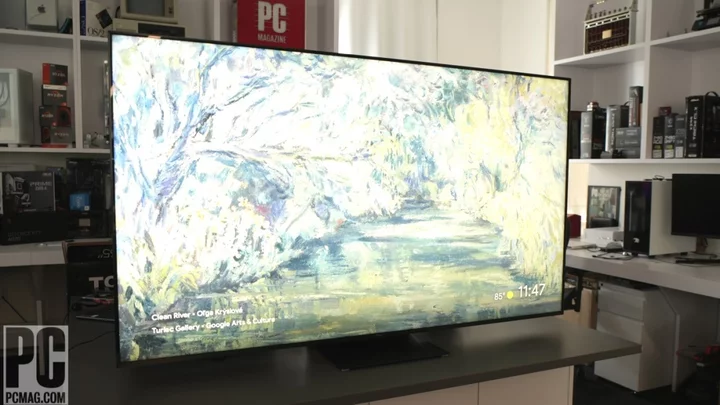
TCL 65-Inch QM8 Class TV (65QM850G) Review
The QM8 line serves as a new flagship tier for TCL, with a mini-LED backlight
2023-06-22 02:16

iPhone 16 rumors: Every single thing we know about it so far
The iPhone 16 and iPhone 16 Pro models are expected to hit store shelves in
2023-09-16 23:48

Did You Get Into Pickleball This Year? This Fashion-Forward Collection Is For You
As the fastest-growing sport in the US, pickleball is the hangout activity of the summer, and now it has the sporty-chic collection to back it up. Launching on June 22, the Staud’s Court drop brings the brand’s effortless, minimalist and timeless aesthetic to the, well, pickleball court — but, don’t worry, tennis obsessives, you’ll love the line, too.
2023-06-22 21:49

DoorDash hits new record for orders, revenue in second quarter
DoorDash set new records for total orders and revenue in the second quarter as its grocery and convenience deliveries accelerated and it improved driver efficiency
2023-08-03 04:16
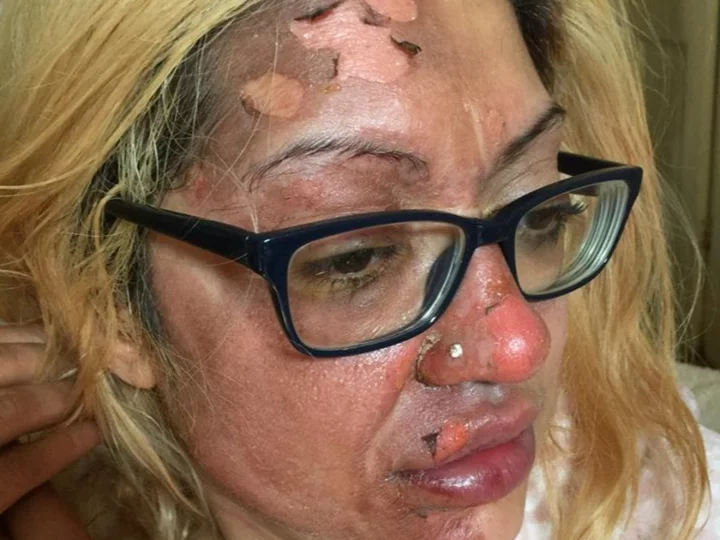
Mother’s warning after viral TikTok hack left skin peeling from her face
A terrified mother has warned against cooking eggs in a microwave after the viral TikTok ‘hack’ exploded and left her skin pealing from her face. Shafia Bashir, 37, said she’d been in “absolute agony” after making a poached egg using a much-publicised recipe available on the internet. She’d first poured some boiling water in a mug before adding the egg and then put it in the microwave for a couple of minutes until it had cooked. But when she put a cold spoon on the egg, it erupted “like a fountain” and scolded the right side of her face - leaving her in the “most excruciating” pain of her life. Shafia went to A&E where her burns were treated, but she said they were still stinging 12 hours after the incident. And though her wounds have now healed, the mum-of-one has still cautioned others to think twice about attempting the popular dish. She said: “I just don’t want anyone else going through that, because it is trending on TikTok…It was the most excruciating pain in my life. “It was a terrifying time for me. I was in absolute agony. “As soon as I put the cold spoon in, it exploded like a fountain and it scolded me. “I put my face under the tap and then had to get my mate to look after my daughter so I could go to A&E. “My face has healed now, luckily with no scars. I used Vaseline, Sudocrem, whatever I could get my hands on.” Shafia, from Bolton, Grtr Manchester, said she had been making the dish for three years when she’d decided to cook it on May 12 while feeling “starving” She had followed a recipe that her ex-mum-in-law had taught her, but on this occasion, she was left stunned when the cooking trick ended in disaster. She said: “I did it exactly the same as I usually do it. I had already made the toast, I was starving! “My ex-mother-in-law told me about it. She told me how to make a poached egg in the microwave. I had been doing it for three years. “I boiled the kettle, half-filled the mug with water, put salt inside, the egg inside, and microwaved it for a minute. It wasn’t cooked, so I put it in for another minute.” “After it happened, I put my face under the tap for 20 mins. But the burning lasted for 12 hours. It just didn’t stop.” The British Medical Journal previously said that microwave ovens should display clear warnings about exploding eggs. Cooking shelled eggs in a microwave is dangerous because the casing holds in heat. Once you have removed the egg from the microwave, it will carry on cooking itself and any disruption can cause an explosion. But similar dangers can apply when cooking sunny side up or poached eggs in the microwave. These cooking hacks proved popular on social media sites such as TikTok, as people look for ways to save time with everyday tasks. But it’s not the first time the trick has gone wrong, with Chantelle Conway, from Farnworth, claiming a similar thing happened to her in 2021. Shafia said she had been left traumatised after the incident and vowed never to eat an egg again. But she has also seen the funny side of her experiences and made light of them to her 15,000 followers on TikTok. Shafia said: “For my last videos on TikTok, I did Beauty and the Beast and Tony Montana from Scarface, with the burn. “My followers thought it was a filter!” Read More Woman sparks debate by documenting busy last day at work after being fired: ‘Just leave’ Selena Gomez ‘yells’ at security guard at Beyoncé’s Renaissance tour Mother hit with deluge of abuse for taking toddler’s packed lunch to a restaurant Schoolboy almost dies from swallowing magnets for TikTok challenge Woman shares honest review of New York City apartment TikTok mom slammed after making 5-year-old son run in 104 degree heat
2023-05-29 20:46
You Might Like...
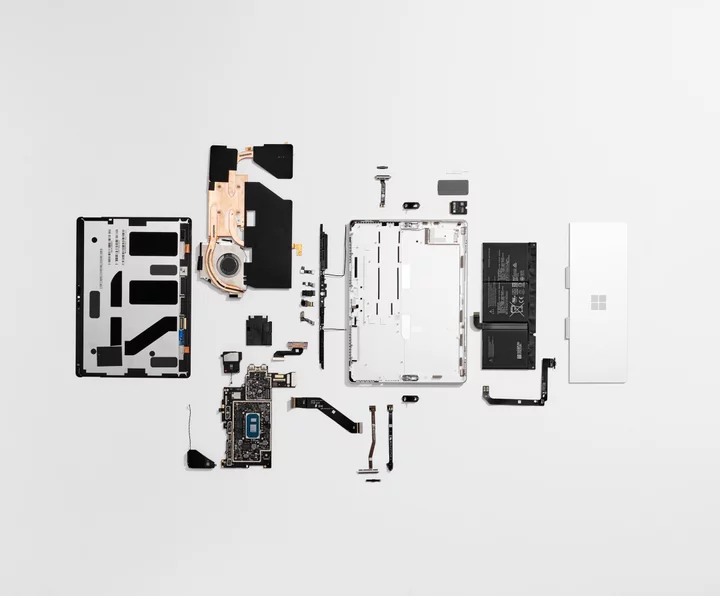
You can now buy Surface replacement parts in the Microsoft Store

What Lionel Messi’s Arrival To Inter Miami Means To Latine Fans

Thai Election Outcome Expected to Boost Retail, Tourism Sectors

Get the best deals on new-to-you laptop and desktop computers this Memorial Day

Get 130 hours of Python training for under £20

20 Cute Home Office Furniture Finds For Your Dream WFH Setup

Elon Musk Think SpaceX Will Land on Mars 'Within 4 Years'

Delta Gains as Global Travel Drives Profit Forecast Higher
